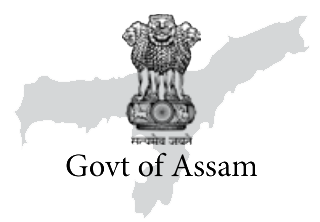Sujan Das (43) of Gossaigaon is in a queue behind some 20 other attendants in the Gauhati Medical College and Hospital. It is almost 10am. He is seeking clarity regarding minor expenses incurred for the treatment of his 75-year-old mother’s kidney under the Atal Amrit Abhiyan (AAA), a cashless treatment scheme. Sujan is a petty trader in his hometown. He earns just enough to take care of his family. “Had it not been for AAA, I could not have afforded her treatment,” he tells Asom Barta while waiting for his turn.
As on August 15, more than 3,18,683 beneficiaries like Sujan availed cashless treatment in empanelled hospitals across Assam and some parts of India. Out of these, 1,75,276 are males and 1,43,407 are females.
It is to prevent the likes of Sujan Das and other households from descending into economic hardship because of unbudgeted spending on healthcare that this scheme has been launched by the Government of Assam. It offers them access to quality treatment in 91 Government and private hospitals. Out of these, 68 hospitals are within Assam (9 Government and 59 private hospitals) while 23 hospitals are located outside the State.
The Society has reimbursed ₹ 413.91 crore to these empanelled hospitals towards the treatment of beneficiaries since the inception of the Scheme on December 25, 2016. The Scheme migrated to a cashless model from April 18, 2018.
“It has allowed hospitals, especially Government ones, to have financial mobility. Given their resources they can even earn under the Scheme. At the same time, the poor need not pay at all if they are covered under it,” says Siddartha Singh, Mission Director, AAA, and Commissioner, Health, Government of Assam. “Even private hospitals are getting patients who otherwise would not have come to them,” he adds.

Managing Director of Nemcare Hospital Dr Hitesh Baruah told Asom Barta that on an average 60-70 patients each month avail advantage of this scheme in their burn and cardiology units. “We appreciate this unique initiative of the Government for the welfare of the poorer section of society. We will continue to accord the best of services to them. However, I also appeal to the Mission to clear our long pending bills,” he said.
Nayan Bhuyan of Moukhati in Nagaon district was able to navigate the tricky waters of the cost incurred for angioplasty treatment of his mother in Narayana Superspeciality Hospital in Guwahati, thanks to the fact that he had enrolled under it. “The total cost of treatment was a little less than ₹ 2 lakh. Accordingly, I was able to get everything done almost free of cost in one day. There were some minor expenses which are not covered under this, but they were too small for me to bother,” he says.
It is open for all BPL and APL families in the State with an annual income of less than
₹ 5 lakh. It provides inpatient treatment facility at the empanelled hospitals (Private and Public) up to a maximum limit of ₹ 2.00 lakh per individual member per annum within and outside the State of Assam covering 438 procedures for treatment of cardiovascular, cancer, kidney, neo-natal, neurological and burns.
The Scheme was expanded on October 25, 2019 and Vistarita Atal Amrit Abhiyan (VAAA) was implemented to cover areas such as ICU packages, trauma, critical care paediatrics, paediatric surgery, Japanese encephalitis & acute encephalitis syndrome, and supplementary packages.
It now covers 732 procedures for the 12 listed specialties.
Enrolment under AAA is free for BPL people. For individuals having annual family income of ₹ 5 lakh or less, the beneficiaries are required to pay ₹ 100 per person per year. Renewal is done after every year which again is free in case of BPL households and chargeable at ₹ 100 per person in case of APLs. Enrolment of eligible beneficiaries is done in the enrolment kiosks located in the districts.













